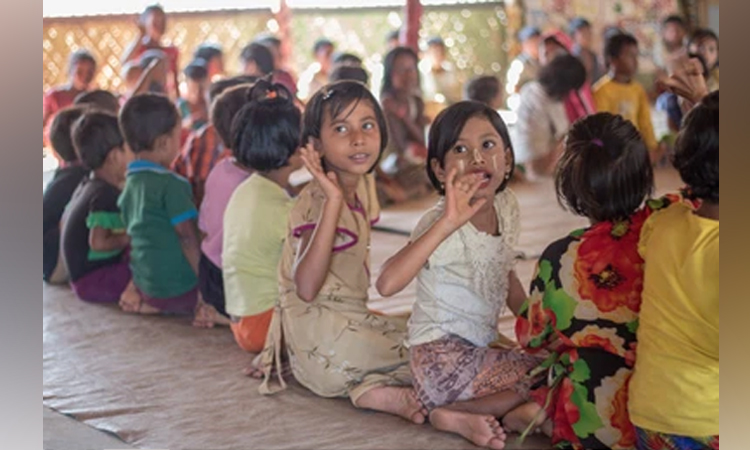News Flash

DHAKA, Sept 09, 2025 (BSS) - On November 20, 1989, the United Nations General Assembly adopted the United Nations Convention on the Rights of the Child (CRC), marking a monumental step in global child protection.
Bangladesh played a pivotal role in shaping and ratifying the Convention, committing to uphold the rights of children by ensuring their survival, development and freedom from exploitation.
Since ratifying the CRC on August 3, 1990, Bangladesh has worked diligently to address the challenges face by the children, although there remain significant gaps in public awareness and implementation.
The CRC outlines four fundamental principles: the right to survival, development, protection from harm and participation in family and social life. Bangladesh was among the first to sign and ratify this document, signaling its dedication to safeguarding the rights of its youngest citizens.
In the years following ratification, child protection efforts in the country initially focused on preventing child labor and trafficking. Organizations such as 'Breaking the Silence' were pioneers in tackling child abuse, raising awareness and providing support to children in distress.
However, as efforts to combat exploitation gained momentum, other important aspects of the Convention, such as the child's right to leisure, education and freedom of expression, remained relatively overlooked.
A case in point is Bibhor, a ninth-grade student who wishes to pursue humanities, despite family and societal pressure to opt for science or commerce. Despite his passion for humanities and guitar, Bibhor faces relentless criticism, forcing him to abandon his interests and compromise his future.
In many households, adults disregard children's choices, believing they lack the judgment to make decisions for themselves. This mindset perpetuates a cycle of disrespect and stifles the potential of children.
The lack of awareness about the importance of child rights often leaves children vulnerable to neglect and exploitation. Parents, teachers and community leaders frequently fail to appreciate the profound impact of enabling children to make decisions, follow their passions and express their ideas freely.
The UN Convention calls for states to ensure that children are informed of their rights and that their views are heard in all matters affecting them.
In 2012, Bangladesh took a crucial step in raising public awareness by introducing child rights topics into the school curriculum. This marked the first time that the rights of children and human rights were systematically included in educational materials. The country had already made primary education compulsory in 1983, but child rights education lagged behind.
Today, the fifth-grade Bangladesh and World Introduction book includes lessons on child labor, education rights and child welfare. These educational reforms aim to ensure that children understand their rights and can advocate for themselves. According to the curriculum, fundamental rights such as the right to life, protection from harm, education and freedom from torture are crucial for the child's well-being and growth.
The curriculum emphasizes that children, like adults, have duties toward their families, communities and nation. Fulfilling these duties ensures that children not only benefit from their rights but also contribute to society's overall development.
Despite these efforts, Bangladesh faces significant challenges in fully implementing child rights, particularly in rural and marginalized communities. Physical abuse, child marriage, trafficking and labor exploitation are all violations that continue to affect children, hindering their development and education. The state's role, as outlined in the CRC, is to protect children from such harms and to create an environment where children's voices are heard and respected.
Raising awareness at all levels of society, from schools to government institutions, is essential to ensuring that children's rights are not merely theoretical but are actively respected. If Bangladesh is to fulfill its commitments under the CRC, more widespread education and awareness efforts are needed, especially in rural areas.
The state must take proactive measures to ensure that the rights of children are respected and upheld across all sectors. This includes the creation of safe spaces where children's opinions are considered in matters affecting their lives. With continued progress, Bangladesh can set a global example for the protection and promotion of children's rights.
As the curriculum expands its coverage of child rights and human rights, there is hope that future generations will grow up in a society where the rights of children are not only acknowledged but protected.